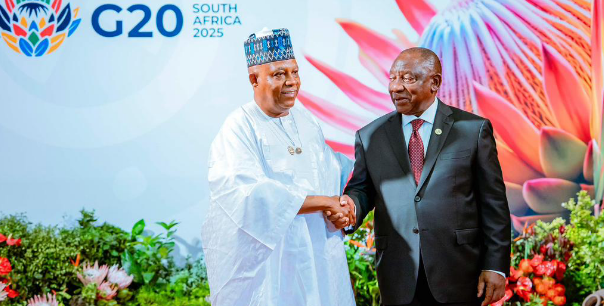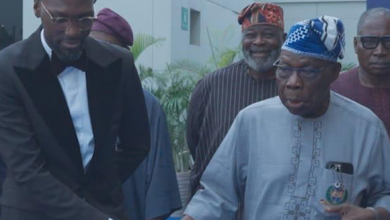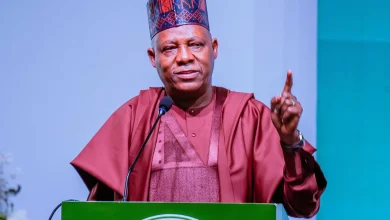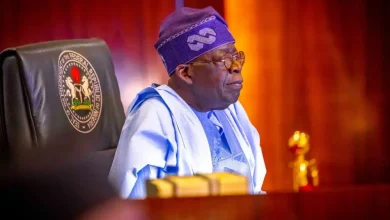Nigeria calls for fair global frameworks on critical minerals, AI at G20 summit

Nigeria on Saturday urged the international community to establish a global framework that ensures communities hosting critical minerals benefit directly from their resources, while also supporting local value addition across Africa.
The call was made during the Third Session of the 2025 Group of 20 (G20) Leaders’ Summit at the Johannesburg Expo Centre, themed “A Fair and Just Future for All: Critical Minerals, Decent Work, Artificial Intelligence.”
Represented by Vice President Kashim Shettima, President Bola Tinubu highlighted the strategic importance of critical minerals for Nigeria and Africa, describing them as catalysts for industrial transformation rather than mere natural deposits.
He stressed that prosperity is not guaranteed by possession alone and called for fairness, transparency, and accountability in the extraction and trade of these resources.
“Nigeria calls for a global framework that promotes value addition at the source, supports local beneficiation, and ensures that communities hosting these resources are not left behind.
“This issue goes beyond economics; it speaks to the moral character of the world we aspire to build.”
Tinubu also linked the conversation on resources to broader global transitions, emphasising the importance of decent work.
“Decent work anchors fair, inclusive, and sustainable transitions.
”It ensures every person can contribute, thrive, and share in national prosperity,” he noted, highlighting Nigeria’s Renewed Hope Agenda, which invests in digital literacy, vocational training, and entrepreneurship for youth.
On artificial intelligence, Tinubu underscored the need for ethical global standards to ensure the technology serves humanity.
.
“AI must be a tool of empowerment, not exclusion; of job creation, not displacement,” he said.
He urged partnerships between developed and developing nations, as well as the public and private sectors, to harness AI’s potential responsibly.
Linking critical minerals, decent work, and AI, the President argued for a shared vision of global stewardship that prioritizes human dignity over profit.
“Africa must not remain merely a supplier of raw materials but evolve into a hub of value creation, innovation, and dignified work,” he added.
Tinubu also called for reforms in global financial governance to address systemic barriers that hinder economic growth in developing nations.
“Many multilateral frameworks no longer reflect today’s complexities. For trade to be truly inclusive, the G20 must reform the international financial architecture and global institutions to meet the needs of all nations, particularly those in the Global South,” he said.
Highlighting the continent’s development challenges, Tinubu stressed the urgency of sustainable financing and debt management, warning that rising debt burdens threaten to trap African economies in cycles of fragility.
He urged the G20 to prioritize debt sustainability and responsible resource management in its Leaders’ Declaration to ensure inclusive and sustainable growth.



